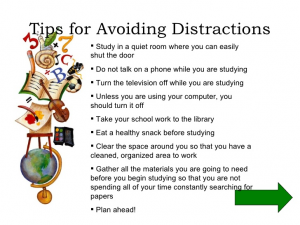How Should You Study and Revise?

Do you ever feel like your study habits simply aren’t cutting it? Do you wonder what you could be doing to perform better in class and on exams?
There have been many studies that have tried to identify the best ways for students to study – we have collated some of these in this newsletter so that you can perfect your studies and maintain your motivation.
Reading is not studying
Simply reading and re-reading texts or notes is not actively engaging in the material. It is simply re-reading your notes. Only ‘doing’ the readings for class is not studying. It is simply doing the reading for class. Re-reading leads to quick forgetting.
Think of reading as an important part of pre-studying, but learning information requires actively engaging in the material (Edwards, 2014). Active engagement is the process of constructing meaning from text that involves making connections to lectures, forming examples, and regulating your own learning (Davis, 2007). Active studying does not mean highlighting or underlining text, re-reading, or rote memorization. Though these activities may help to keep you engaged in the task, they are not considered active studying techniques and are weakly related to improved learning (Mackenzie, 1994).
Ideas for active studying include:
- Create a study guide by topic. Formulate questions and problems and write complete answers. Create your own quiz.
- Become a teacher. Say the information aloud in your own words as if you are the instructor and teaching the concepts to a class.
- Derive examples that relate to your own experiences.
- Create concept maps or diagrams that explain the material.
- Develop symbols that represent concepts.
- For non-technical classes (e.g., English, History, Psychology), figure out the big ideas so you can explain, contrast, and re-evaluate them.
- For technical classes, work the problems and explain the steps and why they work.
- Study in terms of question, evidence, and conclusion: What is the question posed by the instructor/author? What is the evidence that they present? What is the conclusion?
Organize your study area
Getting organised is important – a tidy desk makes for a tidy mind! Move all clutter from your workspace – any textbooks that are not being used – and use only the material that you are working from. Make certain that there is a good overhead light as trying to read in low-light environments can get stressful and tiring.
Try to remove all distractions such as computer games, phones, magazines, and other irrelevant materials that are always a distraction. Have a glass of water on the table as hydration is critical for proper brain functioning.
For most people, complete silence is important, while for others they prefer some soft background music – not rock and roll! Have some fresh nuts or fruit on the table if this helps you think better, particularly if you suffer from low sugar levels because you have been eating sweet foods. Avoid like the plague any sugar products as these will seriously affect your concentration levels – adversely!
Average Concentration Span
There are many studies over the years that have shown that the average concentration span of a university student is about 10-15 minutes. Therefore, trying to study for many hours at a time can end up being counterproductive.
Research studies have shown that concentrating for 20 – 30 minutes at a stretch with small 5-minute breaks is the ideal – get up from your chair and walk around the room and stare out of the window into the horizon to relax your eyes.
Everyone’s different, so develop a study routine that works for you. If you study better in the morning, start early before taking a break at lunchtime. Or, if you’re more productive at night-time, take a larger break earlier on so you’re ready to settle down come evening.
Study every day
If you study a little bit every day, you’ll be continually reviewing things in your mind. This helps you understand things. It also helps you avoid the stress of last-minute cramming.
Early in the year an hour or two a night might be enough to stay on top of things. Later in the year you might need to study more each day.
Space out (your learning)
Teachers and parents are always telling us cramming is the wrong way to learn, and for good reason. It just isn’t as effective as spacing your learning over days, weeks and months. This is known as the “spacing effect”.
Whenever you practise something, you give your brain the opportunity to strengthen the connections between neurons. The strengthening process is similar to how hikers trampling through a forest create worn paths over time. The more hikers, the more distinct the path, just like repeated practice helps lay down strong neural pathways to store memories.
Plan your time
It helps to have some plans in motion so you can make the most of your study time.
- Set alarms – Set alarms to remind you about your study plans. A regular reminder keeps you honest and your plans on track.
- Use a wall planner – Stick a calendar or wall planner up so you can see it whenever you’re studying. Mark it up with important dates, like exams and assignment due dates. Use it to block out your regular study timetable too.
- Make to-do lists – Lists break tasks down into manageable chunks. At the start of the week, make a list of the things that you need to have done by the end of the week. Make a to-do list at the start of each study session too, so that you’re clear about what you need to be doing with your time.
- Set time limits – Before you start your study session, have a look at your to-do list and give yourself a set time to spend on each task. If you don’t get something done in the set time, consider whether it’s the best use of your time to keep going with it, or to start working on something else.
Stay motivated
When you’re studying it helps to keep in mind your reasons for doing all this hard work – you are working and learning because you wish to become an excellent health professional after you have completed your degree in Naturopathy and Holistic Medicine. This is now your life focus – it can help to have something in your study space to remind you of your goals.
You could also decorate your study space with inspirational quotes or photos of people you admire and family members you want to make proud of you.
Give yourself enough time to study
Don’t leave it until the last minute. While some students do seem to thrive on last-minute cramming, it’s widely accepted that (for most of us) this is not the best way to approach an exam. To help sort out your time management, set up a timetable for your study. Write down how many exams you have and the days on which you have to sit them. Then organize your study accordingly. You may want to give some exams more study time than others, so find a balance that you feel comfortable with.
Explain your answers to others
Use your partner or friend to your advantage. Explain an answer to a question to them. That will help you to get it clear in your head, and also to highlight any areas where you need more work.
Write it down
Put those third-grade penmanship lessons to good use. Research suggests that we store information more securely when we write it by hand than when we type it on a computer keyboard. Start by recopying the most important notes from the semester onto a new sheet of paper.
Sleep well, learn well
Learning isn’t easy and being able to focus is important for digesting new information and understanding concepts. When you get a good night’s sleep, you feel fresh and attentive the next day.
Sleep is also critical for what happened the previous day. Extensive work in both animals and humans shows a crucial function of sleep is to re-process and consolidate what happened during the day.
For example, scientists have recorded brain activity patterns first while an animal learns a task, and again when the animal next sleeps. Remarkably, the patterns in sleep are strikingly similar to what is seen when the animal learns.
This replay of activity patterns during sleep happens in your brain too, hundreds of times each night. As a result, the connections between our neurons change, helping the patterns become embedded in the brain. In other words, sleep plays an indispensable role in storing our memories for the long-term.






